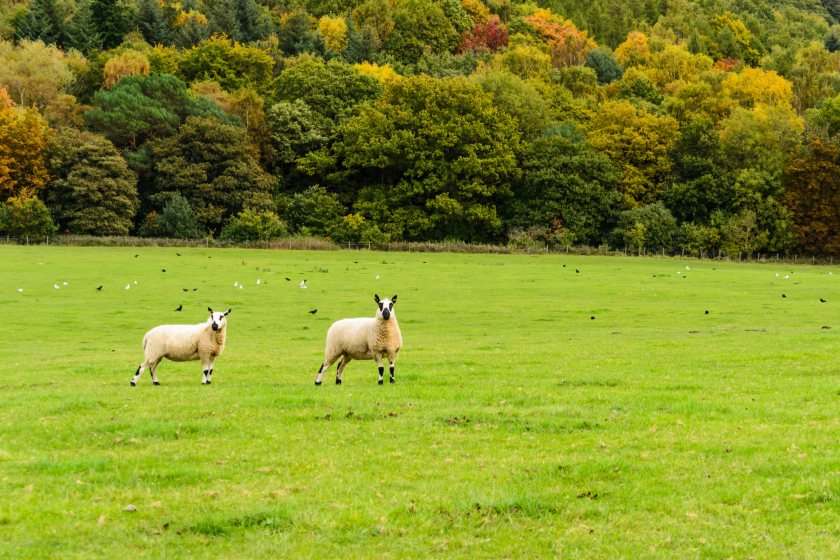Industry body warns bluetongue could devastate Welsh rural life

An industry body has warned that bluetongue could wreak havoc on Welsh rural life unless urgent action is taken to stop the disease spreading.
Bluetongue is a viral disease spread by midges which affects cattle and sheep, causing serious welfare issues — including fever, swelling, lameness and drops in milk yield — and trade restrictions for the livestock industry.
Recent outbreaks have raised alarm bells, particularly in Wales, where four cases of the BTV-3 strain have been recorded in the current vector season (2025–2026).
Experts warn Wales is especially vulnerable because of its high density of sheep flocks, large numbers of small family-run farms and reliance on livestock for rural incomes, making the potential impact more severe than in other parts of the UK.
Nationally, there have been 123 cases of bluetongue, with England reporting 117 cases of BTV-3 and two cases of BTV-8, while Scotland has so far remained unaffected.
John Thorley, chairman of the Association of Independent Meat Suppliers (AIMS), said the risk went far beyond animal health.
“As well as the economic and animal welfare impacts of the disease it is also important to recognise the significant social consequences that will arise if this disease establishes itself in Wales,” he warned.
Thorley highlighted the mounting pressures facing farmers, noting that the fear of bluetongue comes on top of financial and regulatory challenges.
“The strain on farmers comes at a time when a number of government policies including inheritance tax is already having a detrimental impact on the mental health of livestock producers and their families. Whilst resilient there is only so much farming businesses can manage.”
He also pointed to the knock-on effects for the wider rural economy. Suppliers, processors, tourism and retail businesses could all suffer if farming is disrupted, particularly in remote parts of Wales where agriculture underpins local jobs and services.
Thorley added: “All of these factors have a potential negative impact on retaining a viable population in the more remote areas of Wales, a stronghold for the Welsh language, which the Welsh government is committed to protect.”
He criticised the reliance on movement restrictions to control the disease, describing them as “largely ineffectual” this year. Instead, he called for a more proactive approach.
“Failure to act now and implement a coherent strategy, would be an abdication of responsibility, and will have a long term detrimental impact on Welsh rural communities.
"That is why countries in Europe have introduced government funded vaccination campaigns. This allows producers to manage the risk of the disease without the need for costly… movement restriction regimes.”
From the Welsh government, Deputy First Minister Huw Irranca-Davies acknowledged the concern in a written statement: “I recognise the detection of bluetongue in Wales will be a cause for concern within the farming community.
"Vaccination is the best way to protect livestock and livelihoods from the worst impacts of this potentially devastating disease, and I encourage animal keepers to discuss bluetongue vaccination of their herds and flocks with their vets.”
He also warned that failing to secure proactive control would carry cost to producers and the wider economy, and pledged to keep the policy “under regular review” based on evidence “on the ground”.
Farmers say the Welsh government must now decide whether to follow more proactive vaccination strategies seen in Europe — or risk significant long-term damage to rural life, the economy and cultural heritage.
The broader public could also feel the impact, as livestock disruptions might affect meat and dairy supply-chains and local jobs in the countryside.








